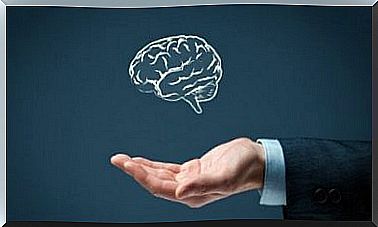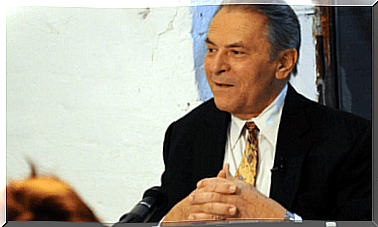Selective Memory: Why Do We Remember Some Things And Not Others?

The psychologist William James once said, “If we remembered everything, we would be just as sick as if we didn’t remember anything” . On a general level, memory works selectively. It does not remember all information in the same way, hence the term ‘selective memory’ . This is the reason that we store certain memories very deep in our mind and remember them perfectly. On the other hand, there are also things that we do not remember very well and easily forget.
All this shows that the selective memory is not a specific type of memory. Rather it is the opposite. The entire memory process is selective. So it is no coincidence that we sometimes remember a past event but then cannot do the same with another event. We will now delve deeper into the fascinating world of selective memory.
Memory is the basis of our identity
In general, memory works the same way in all people. This is not only true with regard to general issues. But it also applies to personal beliefs and autobiographical memories that shape our identity. We are our memories.
But the identity is not a version of all the events we’ve been involved in. We don’t store all the days of our lives in equal amounts in one part of our brain. To believe this would mean to assume that our memory is some kind of exact recording of what we have observed. This is impossible because we only remember what was meaningful to us in some way. This is also why our identity is full of a collection of memories that our selective memory chooses for us.
Why do we remember some events and not others?
When we think about our memories, we find that we remember certain moments in great detail. But there are other memories that don’t seem so clear. And there are even others that make us feel like they have been completely erased from our memory. How come we remember some events and not others?
The main reason is that in order to store and remember information our senses must capture that data in a perfect way. But for this to happen, our attention and perception must operate at an optimal level. If they don’t, we will “lose” information about what happened. Repetition is also very important so that we can perpetuate these memories in our minds.
We find another reason in a phenomenon that we all fall victim to at some point in our lives. This phenomenon is called cognitive dissonance. This is what happens when we maintain two opposing opinions, attitudes, or beliefs in our minds. It’s a very unpleasant feeling. In addition, it is connected to the selective memory. To alleviate this negative feeling, people will often set aside one of two opinions, attitudes, or beliefs. That way they remove the conflict.
Why does memory remember the good things?
We can often feel guilty for doing something that went against our beliefs or feelings, such as quitting a job. What we’re doing here then is using the selective memory to distort the situation until we convince ourselves it was really the right decision . We do this even when deep down we wish we hadn’t made that decision. By distorting our thoughts, over time, the memory we have of that decision will be completely different.
That way we remember some events and not others. Because our brains often reject what is not necessary and keep what really matters. As a form of protection, our memory often remembers the good and the positive things in order to remove the negative events that cause us pain from our minds.
We can clearly see that the function of selective memory is to make a selection of our memories. It puts every memory where it belongs. Some memories it leaves hidden in our minds because it feels that they have nothing to contribute to us or that they are not really of any importance. But other memories it puts in the front row, in case we need them.
But not everything that hurts can be forgotten. Sometimes we keep remembering something for reasons that are not immediately apparent. But science has shown that it is possible to train our minds and forget about unpleasant moments. If we suppress them long enough, they will disappear completely from our memory.
Why is selective memory useful?
Not everything that hurts can magically disappear. As we have said before, science has shown that it is possible to train our minds to forget unpleasant moments.
The psychologist Gerd Thomas Waldhauser of the University of Lund in Sweden has conducted a study on this. He discovered that selective memory allows us to train our minds to forget difficult events. The research confirms that the longer we try to forget a memory, the harder it is to restore it. For example, if we hide for years the pain we have suffered from the loss of a family member, it is almost impossible to remember the words we heard at their funeral. This strategy is very helpful for people with symptoms of depression or post-traumatic stress disorder.

Sometimes getting over the past is not a choice. But then it is the only way to face the future in a healthy way. Suppressing memories that hurt us is the greatest benefit of selective memory. We have the ability to deliberately suppress those memories that bring us down or that are the direct cause of much psychological pain. It is a path that psychology is beginning to use and not just through hypnosis. Memory will always be selective because it is connected to our emotions. But do we remember what we want or what our memory wants?








